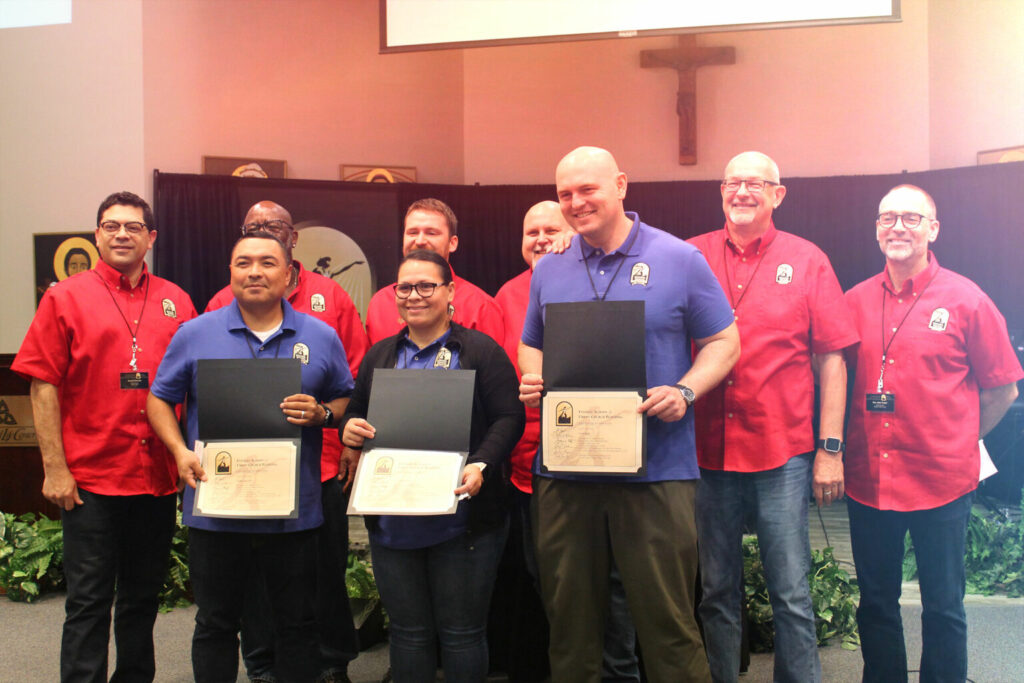Explore how developing the habit of discipleship fosters a vibrant, supportive church community rooted in individual growth and collective faith.
Envision yourself as part of a dynamic, thriving local church. This isn’t just any ordinary church; it’s a community where each member is deeply invested, not merely a face lost in Sunday morning crowds or a name buried in a register. Here, every individual is an active participant, contributing uniquely to the spiritual vitality of the congregation.
The church is not confined by the walls of a building or limited to a specific geographical location. Instead, it’s defined by its people, by their shared faith and commitment. It’s a welcoming place where diverse individuals come together, united by their belief and dedication to spiritual growth. They’ve built more than just a community; they’ve created a spiritual family that nurtures and supports each other on their faith journey.
So, what’s the secret recipe for nurturing such a vibrant, healthy church? The answer lies in the pivotal habit of discipleship.
Discipleship isn’t just another activity or program; it forms the foundation of a flourishing congregation. It’s the key ingredient that transforms an ordinary church into a spiritually thriving community. Through cultivating a habit of discipleship, individual believers grow and mature in their faith, and in turn, contribute to the overall spiritual health and vibrancy of the church. This ongoing cycle of growth and contribution creates a dynamic, spiritually rich community that continuously evolves and adapts, yet remains firmly rooted in the teachings of Jesus.
In this article, let’s explore the habit of discipleship and how it impacts individuals and communities of faith.

The Habit of Discipleship: The Foundation and Endgame
Discipleship stands out from other habits or practices within the church. It is not just another characteristic or trait, nor is it a mere step in a believer’s journey. Instead, it is the endgame, the ultimate goal, and the foundation upon which all other habits are built. It calls for followers of Jesus to not only learn and grow in their faith but also to prioritize disciple-making as the focal point of their lives and the life of their church.
As described in Alvin Sanders’ book, Uncommon Church, a disciple is described as:
“…one who accepts, lives out, and helps spread the teachings of another person. Therefore, a Christian disciple is a person who practices the teachings of Jesus as a lifestyle.”
Discipleship is about more than just accepting the teachings of Jesus; it’s about:
- Fully embodying the teachings
- Living them out in daily life
- Taking it a step further by spreading these teachings to others
It’s a continuous cycle of learning, growing, and teaching that keeps the teachings of Jesus alive and relevant in today’s world.
Components of Discipleship
To start your journey of developing a habit of discipleship, here are five crucial components that play a pivotal role in nurturing faith and contributing to the spiritual health of church communities.
- Bible Study: Studying the word of God is fundamental to discipleship. It provides guidance and insight into God’s teachings and principles.
In fact, we are passionate about biblical literacy. Instead of living unsure about His direction and leading, we can grow deeper in our faith and advance the kingdom with a clear understanding of His ways by studying the Bible. When we have an intimate knowledge of scripture, we are equipped to properly apply God’s principles of justice, mercy, and love to those around us and beyond.
Want to learn more? Read this article to learn 4 Simple Steps to Increase Your Bible Literacy. - Prayer: Regular communication with God is essential, helping disciples to maintain a close relationship with Him and seek His guidance.
Have you downloaded City Prayers? Get 30 Days of Encouragement and Freedom written by those who are currently incarcerated, returning citizens, or mentors of those coming out of prison. - Fellowship: Building relationships with other believers offers support, encouragement, and accountability, fostering a sense of community. Believers can keep each other in check, encourage good behavior, and dissuade each other from straying from God’s path.
- Service: Actively serving others, both within and outside the church, is a practical demonstration of Christ’s love and teachings. This principle is rooted in Jesus’ own words and actions during His time on Earth. He stated, “For even the Son of Man did not come to be served, but to serve, and to give his life as a ransom for many” (Mark 10:45)
- Evangelism: Sharing the Gospel message with others is a key component of discipleship, as it continues the cycle of making more disciples. Jesus’s instruction in Matthew 28:19-20, often referred to as the Great Commission, commands His followers to “go and make disciples of all nations.” This involves sharing the Gospel message with others and guiding them towards a relationship with Christ.
Incorporating these components into a disciple’s spiritual journey not only enriches personal faith but also contributes to the overall vitality and growth of a church community, truly embodying the essence of discipleship.
Keep reading: How Lay Leaders Can Change Your Church For The Better
Inclusivity of Discipleship
One of the most striking features of discipleship is its inherent inclusivity. It does not differentiate or exclude based on one’s past experiences, social background, or economic standing. Whether you’ve navigated the challenges of poverty or experienced the ease of affluence, discipleship remains an open door for all. It carries the assurance that every individual, regardless of their life’s starting point, possesses the potential to evolve into a mature follower of Christ.
This growth, found through a culture and habit of discipleship, isn’t confined to personal spiritual development. As individuals progress in their faith journey, they enrich the overall health and vibrancy of their church community. This fosters an environment of continual spiritual growth and mutual support, making discipleship a transformative force for both the individual and the community.

Discipleship in Impoverished Communities
In churches located in impoverished neighborhoods, this aspect of maturity and communal growth holds significant importance. The focus of discipleship doesn’t remain inward but extends outwardly to uplift and inspire transformation and the pursuit of holiness within the community of believers.
There’s a common misconception that the pursuit of holiness is purely an individual endeavor. However, the church is called to pursue holiness by striving for the collective well-being of a community, making the world a better place for those both inside and outside of the church.
Working towards the collective well-being of all turns the church into a beacon of hope and transformation, particularly in communities grappling with poverty. It enables the church to extend the principles of discipleship beyond its walls, fostering holistic growth, unity, and positive change within the larger community.
In short, personal discipleship acts as the driving force of the holiness of the church, which in turn fuels impactful change within the community, ultimately fostering hope and transformation. That’s both the foundation of discipleship and the endgame.
To deepen your understanding of discipleship, we encourage you to explore Dr. Sanders’ book, Uncommon Church.
World Impact Milestones
At World Impact, we’ve had the incredible privilege of witnessing transformative change in cities worldwide. This has been made possible through the collective efforts of our partners, trainers, and workers who share our vision of establishing healthy churches within communities of poverty. Their commitment and dedication have played a pivotal role in driving growth and fostering change.
In 2021 alone, our programs achieved significant milestones that we’re proud to share:
- We secured partnerships with 683 Ministries. These partners engaged in various World Impact programs, with all associated costs covered. This means that more resources and assistance reached those who needed them most, amplifying our impact within impoverished communities.
- We equipped 777 Trainers. These dedicated individuals are the backbone of our mission, providing World Impact programs to other workers. Their steadfast commitment to imparting knowledge and skills has empowered many and created a ripple effect of positive change.
- We engaged with 8,478 Workers. These are individuals who actively participated in a World Impact program. They represent a diverse group of people, each bringing their unique experiences and perspectives, contributing immensely to the richness and depth of our community.
These numbers are more than just statistics; they represent lives touched, communities transformed, and hope restored. They signify the power of collective effort and reaffirm our belief that through partnership and collaboration, we can make a lasting impact.
Read more and discover: How Can Those Who are Incarcerated Learn More About God?

Witness the Transformative Power of Discipleship
At World Impact, our dedication to our mission is steadfast. Our focus is on transforming communities in need by nurturing the growth of healthy churches and promoting the practice of discipleship. This begins with equipping leaders to establish thriving churches, which in turn disciple believers to continue the cycle of discipleship. Our programs are tailored for urban environments, aiming to empower church leaders to further educate others within their communities.
We invite you to join us on this meaningful journey of transformation for neighborhoods of poverty. Together, we can make a difference.
When you come alongside World Impact as a donor, you empower thousands of workers globally and help provide training and discipleship to spread the reach of the Gospel with faithfulness to Scripture.
Contribute to World Impact today and witness firsthand the transformative power of discipleship on churches and communities.
